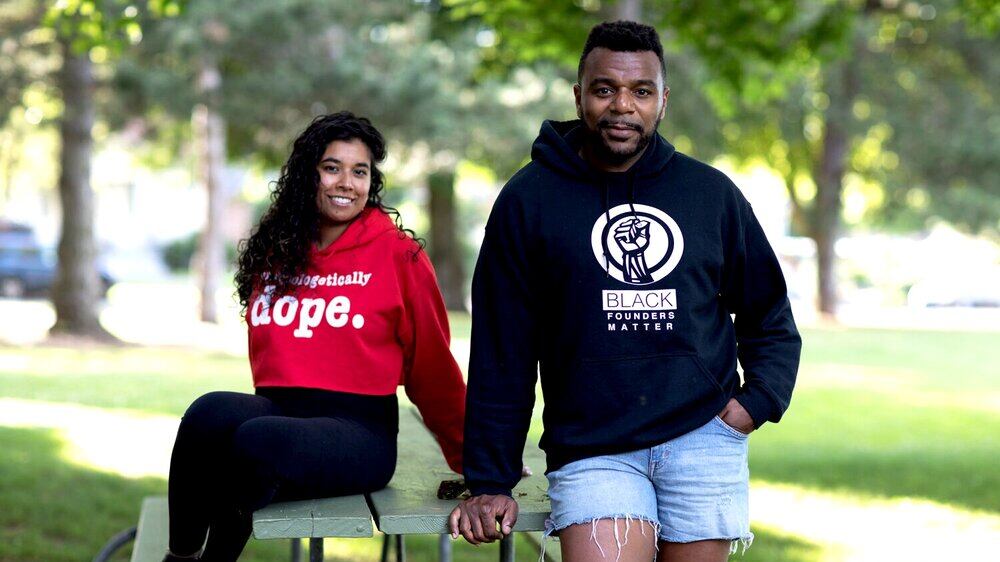As Marceau Michel announced $5,000 grants for three BIPOC-owned startups Friday morning at TechfestNW, he reminded attendees how much more is needed.
Investors say they want to fund businesses run by women and people of color—but, in reality, the needle has barely moved. Over the past 10 years, the level of venture capital investment in businesses owned by women and people of color has continuously hovered around 1%, according to Michel, CEO of Black Founders Matter, an investment fund focused on Black-owned startups.
There are a variety of reasons for that, he said at Friday’s keynote address at the virtual TechfestNW, but one stood out. Benchmarking—that is, measuring the performance of a company’s products, services or processes against those of businesses considered to be “best in class”—is a “pretty dated way” of evaluating potential investments, Michel said.
“The problem with benchmarking is, if you don’t match up with what already exists, and if you don’t look like what already exists, you end up getting left behind,” Michel said.
Michel gave examples of several Black founders who’ve faced resistance from investors and other gatekeepers when they tried to get their businesses off the ground—including a Miami-based entrepreneur who started a coworking space in a historically Black part of the city. Investors assumed she wouldn’t have money to make a down payment on a building—and when she did raise funds for a down payment, “they assumed she had been an adult worker, which still blows my mind.”
Michel said he knows what it’s like to get rejected by investors after presenting a product and company that don’t look like those they’ve invested in before. That’s why he started Black Founders Matter, which was founded in 2018 and began making investments last year.
But when he and his business partner, Himalaya Rao, reviewed their investments so far, they discovered a trend that was “like a punch in the stomach.”
“We are wildly proud of the founders that we’ve been able to invest in but we realized all we’d invested in was men,” Michel said.
Since then, the fund has sought out businesses owned by Black women to invest in. But the experience underscored that while money itself is color neutral, what we do with it isn’t.
“This is not a white-versus-Black problem or a Latino-versus-Asian problem. It’s something that we all have to reassess,” Michel said.
Immediately after Michel’s talk, Rao introduced the Include Awards.
The result of a partnership between Black Founders Matter and SheerID, Prosper Portland and Schwabe, Williamson & Wyatt, the Include Awards distribute $5,000 in non-dilutive capital—that is, financing that doesn’t offer equity or ownership—to three BIPOC-owned founders.
The idea, Amanda Oborne, president and executive director of the Oregon Entrepreneurs Network, tells WW, is to address the racial wealth gap—and the fact that white founders often receive initial investments from family and friends before they go about formal fundraising.
The winners are:
- 1HubFashion, founded by 20-year-old Bless King, a marketplace to make it easier to find street fashion by underground designers;
- Glue Health, founded by Damolo Omotosho, a health app that provides reminders about exercise and medications, not just to individual users but their family members, allowing family members, including family caregivers, to stay connected and accountable;
- MasaFresh, co-founded by Trang Sharbaugh and Trang Ho, a grocery delivery service that allows users to connect with farms and farmers markets to learn about farmers directly.
